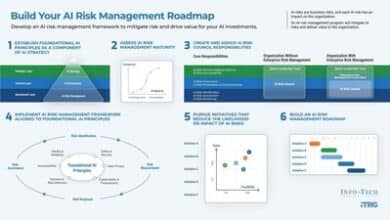Poland-based health tech AI startup Cardiomatics has announced a $3.2 million seed raise to expand the use of its electrocardiogram (ECG) reading automation technology.
The round is led by Central and Eastern European VC Kaya, with Nina Capital, Nova Capital, and Innovation Nest also participating.
The seed raise also includes a $1 million non-equity grant from the Polish National Centre of Research and Development.
Details about the AI startup Cardiomatics
The 2017-founded startup sells a cloud tool to speed up diagnosis and drive efficiency for cardiologists, clinicians, and other healthcare professionals to interpret ECGs. Thus, automating the detection and analysis of some 20 heart abnormalities and disorders with the software generating reports on scans in minutes. This is faster than a trained human specialist would be able to work.
Cardiomatics touts its tech as helping to democratize access to healthcare. They say the tool enables cardiologists to optimize their workflow so they can see and treat more patients. It also says it allows GPs and smaller practices to offer ECG analysis to patients without needing to refer them to specialist hospitals.
Market statistics of AI startup Cardiomatics
As per the startup, the AI tool has analyzed more than 3 million hours of ECG signals commercially to date. According to the company, more than 700 customers in 10+ countries use the software. The countries include Switzerland, Denmark, Germany, and Poland.
The software is able to integrate with more than 25 ECG monitoring devices at this stage. It also offers a modern cloud software interface as a differentiator versus legacy medical software.
A question was always there. How accurate are the readings of its AI’s ECG? To this, the startup gave the following answer. “The data set that we use to develop algorithms contains more than 10 billion heartbeats from approximately 100,000 patients and is systematically growing. The majority of the data-sets we have built ourselves, the rest are publicly available databases.
“Ninety percent of the data is used as a training set. And 10% for algorithm validation and testing. According to the data-centric AI, we attach great importance to the test sets to be sure that they contain the best possible representation of signals from our clients. We check the accuracy of the algorithms in experimental work during the continuous development of both algorithms and data with a frequency of once a month. Our clients check it every day in clinical practice.”

Plans for the investment money
Cardiomatics plans to use the seed funding to invest in product development, expand its business activities in existing markets, and gear up to launch into new markets. Future plans include obtaining FDA certification and entering the US market.
The AI tool received European medical device certification in 2018. Although the European Union’s regulatory regime for medical devices and AI is continuing to evolve and update to the bloc’s Medical Devices Directive (now known as the EU Medical Device Regulation).
A new risk-based framework for applications of AI, aka the Artificial Intelligence Act, is also incoming. This will likely expand compliance demands on AI health tech tools like Cardiomatics. By introducing requirements such as demonstrating safety, reliability, and a lack of bias in automated results.
Ensuring algorithm efficiency
In Europe, The AI startup Cardiomatics is one of the first AI-based solutions to be approved as a medical device. The company intends to stay in front of the pace. Hence they carefully observe the situation in Europe and the process of legislating a risk-based framework for regulating applications of AI. They are monitoring the draft regulations and requirements that may be introduced soon. And when that happens, they will immediately undertake their implementation in the companys’ and product operations. As well as extending the documentation and algorithms validation with the necessary evidence for the reliability and safety of our product.
However, it also conceded that objectively measuring the efficacy of ECG reading algorithms is a challenge.
ECG interpretation is a function of experience, rules, and art when the analysis is performed by a physician. When a human interprets an ECG, they see a curve. It works on a visual layer. An algorithm sees a stream of numbers instead of a picture, so the task becomes a mathematical problem. But, ultimately, the effectiveness of the algorithm greatly depends on the knowledge of the domain. This knowledge and the experience of Cardiomatic’s medical team is a piece of art. Algorithms are also trained on the data generated by cardiologists. Hence, there is a strong correlation between the experience of medical professionals and machine learning.



